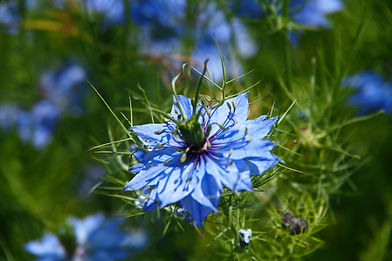
Black Seed
botanical name: Nigella sativa (L)
Also known as black cumin seed or nigella, is a spice with a rich tradition and long history of use in many diverse culinary and medicinal systems.
Key Features:
- strong antioxidant activity
- helpful for the lungs & sinuses
- increases breast milk production
What does it do?
Antioxidant activity: oxidative stress contributes to several progressive conditions in the body. Black seed contains an antioxidant known as Thymoquinone, which helps to support a healthy glycemic response and lipid profile in the body; which in turn helps to support a healthy cardiovascular and endocrine system, as well as modulate inflammation.
Respiratory system: black seed can support lungs and sinuses through modulation of mast cells by reducing the release of inflammatory compounds such as histamines, cytokines etc. Due to the antioxidant activity, black seed can support healing in the lower respiratory tract following tissue damage; and due to its antibacterial, bronchodilator and expectorant actions, it is also helpful in respiratory infections and asthma.
Digestive health: as a culinary spice, the benefits are similar to that found with other aromatic herbs - it helps to provide relief of GI (gastrointestinal) discomfort such as spasms, bloating, impaired digestion etc. Additionally, it works well to rid the body of intestinal worms.
Skin: when used topically, black seed oil helps to reduce inflammatory skin conditions and irritations. Due to the antioxidant activity, it is used in various skincare routines to help combat the signs of ageing.
New mothers: traditionally, black seed is used to help with the resilience of a new mother and has galactagogue properties meaning it can help to increase milk supply, particularly if having issues with breastmilk production due to insulin resistance. It is also an emmenagogue, helping to bring on menses.

Active Constituents
Thymoquinone
Fatty acids
Terpenes
Parts Used
Seed
Herbal Actions
Carminative
Antioxidant
Anti-inflammatory
Galactagogue
Emollient
Expectorant
Applications
Teas,
Tinctures,
Salves,
Oils
Precautions
Avoid use during pregnancy due to traditional use as an emmenagogue


